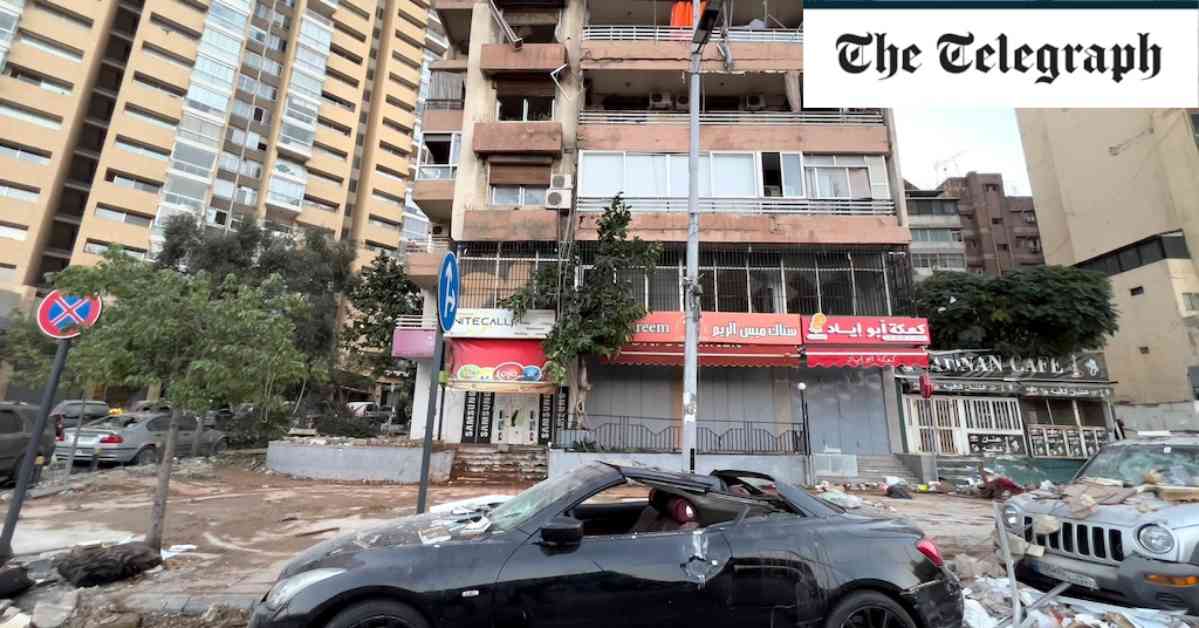Israeli Special Forces Conduct Raids in Lebanon Amid Escalating Conflict
Israeli special forces have carried out raids in Lebanon in preparation for a potential ground invasion as tensions rise amid the ongoing conflict between Israel and Hamas. The raids, conducted by elite troops, targeted Hezbollah infrastructure, including weapons sites and command and control centers, with the aim of pushing militants away from the Israeli border.
An Israeli official revealed to the Telegraph that the special forces were focusing on key sites built across the border zone to weaken Hezbollah’s capabilities. The timing of these raids follows Israel’s assassination of Hezbollah leader Hassan Nasrallah, prompting the Israeli government to leverage its advantage in the region.
The Wall Street Journal reported that the commando raids included entering Hezbollah’s tunnels, indicating a possible imminent ground incursion by Israeli forces into Lebanon. This move mirrors Israel’s previous actions against Hamas in the Gaza Strip before launching a full-scale invasion in late October 2023.
Israeli Defense Minister Yoav Gallant hinted at a potential ground operation against Hezbollah in Lebanon, emphasizing the importance of ensuring the safety of residents in northern Israel amid escalating rocket attacks from Lebanon. The evacuation of around 60,000 citizens from border regions underscores the need for military action to secure the area and prevent further attacks on Israeli territory.
Meanwhile, Iran has declared that it will not deploy additional forces to Lebanon or Gaza to confront Israel, stating that fighters in these regions possess the strength to defend themselves against aggression. This announcement comes amidst concerns over Israel’s potential ground incursion into Lebanon and the broader implications of regional conflict.
In a separate development, Israel expanded its military actions to central Beirut for the first time since the conflict began, targeting a residential apartment building in the Cola neighborhood. The strike resulted in casualties, including members of the Popular Front for the Liberation of Palestine, a Marxist-Leninist faction with historical ties to aircraft hijackings and anti-Israel activities.
Hezbollah, in response to the Israeli airstrikes, has vowed to select a new leader soon to continue its resistance against Israel. The group’s deputy chief, Naim Qassem, expressed confidence in Hezbollah’s ability to confront Israeli forces, recalling their previous success in the 2006 Israel-Lebanon conflict.
As the situation escalates, the United Nations Relief and Works Agency for Palestine Refugees (UNRWA) confirmed that one of its employees, Hamas’ leader in Lebanon, was killed in an Israeli airstrike. The incident underscores the complex interplay of political allegiances and regional tensions that continue to fuel the conflict in the Middle East.
The Israeli military’s expansion of operations to Yemen, targeting Houthi positions, adds another layer of complexity to the regional dynamics. The strikes in Yemen, coupled with ongoing actions in Lebanon and Gaza, highlight Israel’s multi-front approach to addressing security threats in the region.
Amidst the escalating conflict, the UN refugee agency reported that around 100,000 Lebanese and Syrian nationals have fled Lebanon for Syria due to the Israeli airstrikes. The humanitarian impact of the conflict underscores the urgent need for diplomatic solutions to de-escalate tensions and prevent further displacement and loss of life.
In conclusion, the Israeli special forces’ incursions into Lebanon mark a significant escalation in the ongoing conflict with Hezbollah and Hamas. The potential for a ground invasion raises concerns about the broader regional implications of the conflict and the need for international intervention to prevent further escalation and mitigate the humanitarian crisis unfolding in the region.












